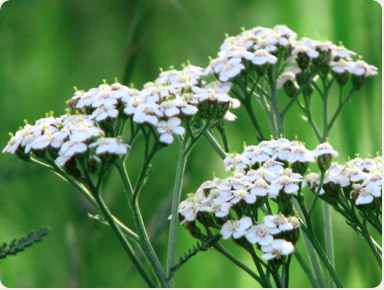Newsletters » Shelf Life

Shelf Life of Essential Oils
My initial source of information about essential oils reported that viable essential oils were found in King Tut's tomb. Those promoting this notion used this example to demonstrate that essential oils had a practically unlimited shelf life. Statements such as this one are repeated unwittingly on the internet: "In 1992 when King Tut's tomb was opened in Egypt, liters of essential oils were discovered. After removing a thick waxy substance from the top of the jars, the oils were tested to reveal that the chemical constituents were in perfect condition. If shelf life is important to you, pure, unadulterated essential oils withstand the test of time!"
I never could verify this information with a reliable source, but I did find that traditionally the discovery of true steam distillation (much like what we know today) is attributed to Avicenna (Ibn Sina), a Persian scientist, in the eleventh century (about 2,300 years after King Tut died). Aromatic products during ancient times would most likely have been extracted with solvents such as olive oil, which would have produced a different chemistry than distilled oils. Sadly, there is a lot of misinformation out there that we have to wade through, and while the precise history is unclear, it's highly unlikely that essential oils will be efficacious for hundreds of years.1
but I did find that traditionally the discovery of true steam distillation (much like what we know today) is attributed to Avicenna (Ibn Sina), a Persian scientist, in the eleventh century (about 2,300 years after King Tut died). Aromatic products during ancient times would most likely have been extracted with solvents such as olive oil, which would have produced a different chemistry than distilled oils. Sadly, there is a lot of misinformation out there that we have to wade through, and while the precise history is unclear, it's highly unlikely that essential oils will be efficacious for hundreds of years.1
The 'shelf life' of a particular essential oil is difficult to predict with certainty because there are many variables. Efficacy is determined by chemical stability, and anything that interferes with this stability will cause the oil to start the slow inexorable process of deterioration. Oxygen and extreme heat are the worst enemies of the oils. Essential oils don't go rancid like carrier oils, but therapeutic efficacy decreases over time.
Basic Guidelines
- Store the oils in moderate temperatures. If they become heated (such as left in a hot car), allow the bottle to return to room temperature before opening. Storing in a refrigerator is great for essential oils, but I'd allow them to come to room temperature before opening. Robert Tisserand, author of Essential Oil Safety: A Guide for Health Professionals suggests that you can double the shelf life with refrigeration.
- Keep the lid off as briefly as possible to avoid exposing the oil to oxygen, and if using from a large bottle, transfer to a smaller bottle as you use the oil to reduce the amount of oxygen in contact with the essential oil.
- Citrus oils are typically not steam distilled but rather expressed and have short shelf lives. Citrus oils are high in terpenes, which are very prone to oxidation. Purchase expressed citrus oils in amounts that will be used in a year or two. When stored properly, we've had bottles of citrus oils appear uncompromised 2+ years later. Citrus oils are not rich in antioxidant constituents, but when in a blend with antioxidant-rich essential oils (such as Clove and Thyme), the shelf life is extended.2
- Carrier oils have varying shelf lives, and if added to a bottle of essential oil, the shelf life of the carrier oil will impact the shelf life of the essential oil. Fractionated Coconut oil has a long shelf life, while Almond, Evening Primrose, Grapeseed and Sesame oils have relatively short shelf lives.
When an essential oil oxidizes, the aroma changes. It is less fresh, progressively less pleasant aromatically, and it is not as useful therapeutically. This process is slow, taking months, as the constituents are chemically altered by atmospheric oxygen. As an example, the usefulness of Lemon hinges on its high limonene content, so if limonene content drops from 70% to 30%, it's not going to do what you hope it will do. There is also a small increased risk of skin sensitization.3
An essential oil in a full, unused bottle should stay fresh for a long time. Realizing the variables, perhaps the best way to determine shelf life is to assume the clock starts when you first open the bottle. When protected from oxygen and when refrigerated, the oils will generally follow this approximate guideline:4
1-2 Years (Monoterpene, Monoterpene/Oxide (cineole), Monoterpene/Aldehyde and Monoterpene/Monoterpenol-rich oils)
Grapefruit
Lemon
Lime
Mandarin
Nutmeg
Orange
Palo Santo
2-3 Years (Monoterpene, Monoterpene/Oxide (cineole), Monoterpene/Aldehyde and Monoterpene/Monoterpenol-rich oils)
Balsam Fir
Cistus
Cypress
Douglas Fir
Eucalyptus oils (except dives)
Frankincense
Galbanum
Juniperberry
Laurel Leaf
Lemongrass
May Chang
Melissa
Myrtle
Niaouli
Oregano
Silver Fir
Thyme ct thymol
3-4 Years (Monoterpenol, Monterpenol/Ester, Ketone and Phenol-rich oils)
Ketone and Phenol-rich oils)
Black Pepper
Black Spruce
Bergamot
Citronella
Clove
Coriander
Elemi
Eucalyptus dives
Neroli
Ravintsara
Rosalina
Rosemary
Marjoram
Tea Tree
Turmeric
Yarrow
4-5 Years (Monoterpenol, Monterpenol/Ester, Ketone-rich oils)
Basil
Cardamom
Clary Sage
Geranium
German Chamomile
Ginger
Helichrysum italicum
Jasmine
Lavender
Palmarosa
Peppermint
Petitgrain
Plai
Roman Chamomile
Rose
Rosewood
Thyme ct linalool
Ylang Ylang
6-8+ Years (Sesquiterpene and Sesquiterpenol-rich oils)
Birch
Carrot Seed
Cedarwood
Copaiba
Myrrh
Patchouli
Sandalwood
Spikenard
Vetiver
These oils with thicker viscosity mellow and seem to improve aromatically with age. I read a testimony about a Sandalwood essential oil bottled in 1911 that was described as "beyond sublime."
Shelf Life of Carrier Oils
(Refrigeration will increase the shelf life.)
Almond - 1 year
Aloe Vera - 6 months to 1 year (2+ years when refrigerated)
Argan - 2+ years
Arnica - 1 year
Black Cumin - 2 years
Calendula - 1 year
Carrot Seed - 1 year
Castor - 5 years
Coconut oil (fractionated) - 5 years +
Emu oil - 1 year (refrigerate)
Evening Primrose - 6 months-1 year (refrigerate)
Grapeseed - 1 year
Hemp Seed - 1 year (refrigerate)
Jojoba - 5 years
Neem - 2 years
Rose Hip Seed oil - 6 months (refrigerate)
Sesame - 1 year
St. John's Wort - 1 year
Tamanu - 1 year
Wheat Germ - 1 year
Many Blessings,
Linda and the HEO crew!
____________________
1 Ancient Roots of Fragrant Medicine | A History of Aromatherapy by Joie Power, Ph.D.
2 The monoterpene content of lemon oil decreased from 97.1% to 30.7% in 12 months when the oil was stored at 77°F (25°C) with the cap removed for three minutes every day. However, storage at 41°F(5°C), with the cap removed for three minutes once a month resulted in minimal degradation ( Sawamura et al 2004).
Tisserand, Robert; Young, Rodney, Essential Oil Safety: A Guide for Health Care Professionals, Elsevier Health Sciences UK 2nd Edition 2014.
3 Antioxidant Essential Oils
4 Tisserand, Robert, Lemon on the rocks: keep your essential oils cool,


